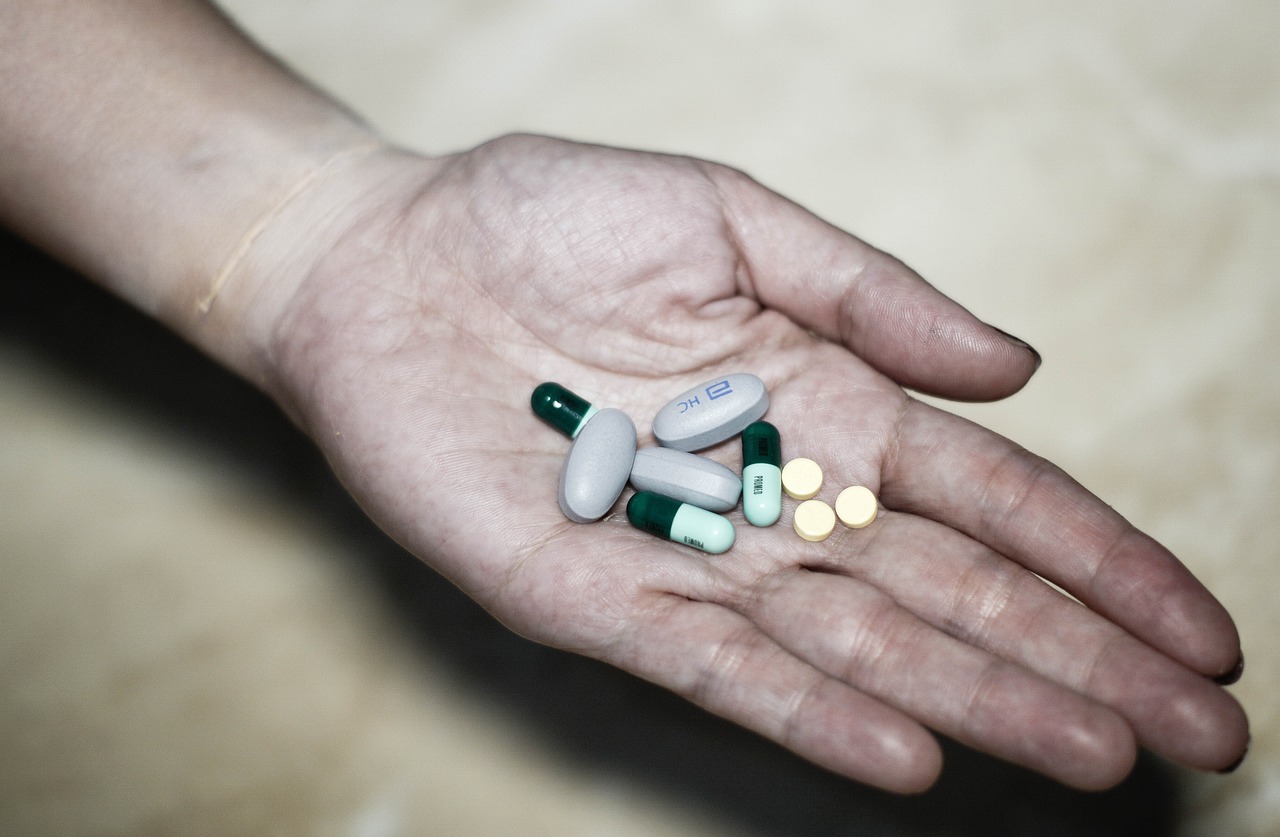Navigating Mental Health Discussions on Social Media
In today's digital age, social media has become a double-edged sword when it comes to discussing mental health. On one hand, it offers a platform for individuals to share their experiences and connect with others, creating a sense of community. On the other hand, it can also perpetuate stigma and spread misinformation. So, how do we navigate these complex waters? The key lies in understanding both the benefits and challenges of mental health discussions online, and employing best practices to foster supportive environments.
When we think about mental health, it’s essential to recognize that many people feel isolated in their struggles. Social media can break down those walls, allowing individuals to find others who resonate with their feelings. Imagine scrolling through your feed and stumbling upon a post that perfectly articulates what you’ve been feeling for months. It’s like finding a lighthouse in a stormy sea—suddenly, you’re not alone anymore. However, this connectivity comes with its own set of challenges. Not all conversations are constructive, and the anonymity of the internet can sometimes lead to harsh judgments and unhelpful advice.
Moreover, the way we communicate on these platforms can significantly impact the effectiveness of our discussions. For instance, the tone of a message, the choice of words, and even the timing of a post can influence how others perceive and respond to mental health topics. It's crucial to approach these discussions with empathy and understanding, ensuring that we create a safe space for everyone involved. After all, we’re all navigating our own battles, and a little kindness can go a long way.
As we delve deeper into the nuances of mental health discussions on social media, we'll explore the role of various platforms, the importance of community building, and the risks associated with misinformation. Each section will provide insights and practical tips that can help us engage more positively in these vital conversations. The landscape of mental health on social media is ever-evolving, and by being proactive and informed, we can contribute to a more supportive online environment.
Understanding the significance of mental health awareness is crucial in reducing stigma and promoting open conversations. This section examines the role social media plays in spreading awareness.
Different social media platforms have unique impacts on mental health discussions. This section looks at how various platforms facilitate or hinder these important conversations.
Creating supportive online communities can significantly benefit individuals struggling with mental health issues. This subsection discusses how social media fosters connections and support networks.
Hashtags can amplify mental health discussions and connect individuals facing similar challenges. This part explores effective hashtags that encourage participation and awareness.
Different content formats, such as videos and infographics, can enhance engagement. This section highlights how varied media can effectively communicate mental health messages.
Misinformation can spread rapidly on social media, posing risks to mental health discussions. This subsection outlines common misconceptions and how to identify credible sources.
Stigma around mental health persists in online spaces. This section discusses how to address and challenge stigma effectively within social media contexts.
Engaging positively in mental health discussions requires specific strategies. This subsection provides tips for fostering constructive dialogue and supporting others.
Encouraging individuals to seek professional help is vital. This part highlights how social media can be a tool for promoting mental health resources and services.
As social media evolves, so do the discussions surrounding mental health. This section speculates on future trends and the potential for improved understanding and support online.
- What are some effective hashtags for mental health awareness?
- How can I find supportive communities online?
- What should I do if I encounter misinformation about mental health?
- How can I encourage someone to seek professional help?

The Importance of Mental Health Awareness
Mental health awareness is a critical topic that cannot be overlooked in today's fast-paced world. It serves as a beacon of hope for countless individuals grappling with mental health issues. By raising awareness, we can significantly reduce stigma and encourage open conversations. Imagine a world where discussing mental health is as normal as talking about physical health; that’s the future we’re striving for. Social media plays a pivotal role in this transformation, acting as a platform where people can share their stories, seek support, and find resources.
Social media has revolutionized the way we communicate, making it easier than ever to connect with others who share similar experiences. In the past, many individuals felt isolated in their struggles. Now, with just a few clicks, they can find communities that resonate with their feelings and challenges. This connection can be incredibly powerful, as it fosters a sense of belonging and understanding. When people see others bravely sharing their journeys, it inspires them to do the same, creating a ripple effect of openness and support.
Furthermore, mental health awareness on social media can lead to increased education and understanding. Many people are unaware of the complexities surrounding mental health disorders, which can lead to misunderstandings and harmful stereotypes. By sharing informative content—such as articles, infographics, and personal narratives—users can help educate their followers. For instance, a simple post explaining the symptoms of anxiety or depression can enlighten someone who might be experiencing these feelings but doesn't know how to articulate them. The more we share, the more we learn.
However, it’s essential to approach these discussions with sensitivity and care. Not all content shared online is accurate, and misinformation can spread like wildfire. This is why it’s crucial for individuals to rely on credible sources when discussing mental health. When sharing information, consider the following:
- Always verify the source of the information.
- Share content from reputable organizations like the National Alliance on Mental Illness (NAMI) or the World Health Organization (WHO).
- Encourage followers to seek professional help when necessary.
In conclusion, the importance of mental health awareness cannot be overstated. Social media has the power to transform lives by breaking down barriers and fostering supportive environments. As we continue to navigate these discussions, let’s remember that every post, every share, and every conversation can contribute to a more understanding and compassionate world.

The Role of Social Media Platforms
When it comes to discussing mental health, the role of social media platforms cannot be overstated. These platforms serve as a double-edged sword, providing both opportunities and challenges for individuals seeking to engage in mental health conversations. On one hand, they offer a space for people to share their experiences, find support, and connect with others who understand their struggles. On the other hand, the very nature of social media can sometimes distort these discussions, leading to misunderstandings or even misinformation.
Different platforms cater to various demographics and communication styles, which can significantly impact how mental health topics are perceived and discussed. For instance, platforms like Instagram and Twitter are known for their visual and concise content, respectively, making them ideal for quick, impactful messages. In contrast, Facebook and Reddit allow for more in-depth discussions, enabling users to share longer narratives and engage in more complex dialogues. This versatility means that individuals can choose the platform that best suits their communication preferences, which is essential for fostering meaningful conversations.
Moreover, the culture of each platform influences the type of discussions that occur. For example, Instagram is often filled with inspirational quotes and mental health awareness campaigns, creating a visually appealing environment that encourages positive engagement. Conversely, on platforms like Twitter, discussions can be more fragmented and sometimes contentious, as users engage in rapid-fire exchanges that may lack context. Understanding these nuances can help individuals navigate the mental health landscape on social media more effectively.
Another critical aspect is the role of influencers and public figures in shaping mental health conversations. Many influencers use their platforms to share personal stories, advocate for mental health awareness, and promote resources. This visibility can help normalize discussions around mental health, making it easier for others to share their experiences. However, it’s essential to approach these narratives critically. Not all influencers are mental health professionals, and their advice may not always be grounded in evidence-based practices.
To illustrate the impact of different platforms, consider the following table that compares various social media platforms based on their strengths and weaknesses in facilitating mental health discussions:
| Platform | Strengths | Weaknesses |
|---|---|---|
| Visual storytelling; inspirational content; strong community support | Superficial engagement; potential for unrealistic comparisons | |
| Quick dissemination of information; trending topics | Limited context; potential for misunderstandings | |
| In-depth discussions; support groups; comprehensive resources | Privacy concerns; potential for negativity in comments | |
| Anonymity; diverse communities; detailed conversations | Varied quality of information; potential for toxic interactions |
In conclusion, the role of social media platforms in mental health discussions is multifaceted. By understanding the strengths and weaknesses of each platform, individuals can better navigate these spaces and engage in more meaningful conversations. It’s crucial to approach these discussions with an open mind and a critical eye, ensuring that we contribute positively to the mental health narrative online.
- How can I find supportive mental health communities online? Look for groups or hashtags related to mental health on platforms like Facebook or Instagram. Engage with posts that resonate with you and connect with others in the comments.
- What should I do if I encounter misinformation about mental health on social media? Always verify information from credible sources before sharing. If you see misinformation, consider addressing it politely or reporting it to the platform.
- Can social media really help improve mental health? Yes, when used mindfully, social media can provide support, resources, and a sense of community for those struggling with mental health issues.

Building a positive community on social media can be a game-changer for individuals grappling with mental health challenges. Imagine stepping into a space where everyone understands your struggles, where sharing your story feels less daunting, and where support flows freely like a warm hug. This is the power of social media when it is harnessed correctly. Communities can form around shared experiences, creating a sense of belonging that many people crave. Whether it’s a Facebook group dedicated to anxiety support or an Instagram account that shares uplifting mental health quotes, these platforms can foster connections that might not be possible in our day-to-day lives.
One of the most remarkable aspects of social media is its ability to unite people from diverse backgrounds, all coming together for a common cause: mental wellness. It’s like a digital campfire, where stories are shared, and lessons are learned. Here, individuals can find solace in knowing they are not alone. The anonymity that social media offers can also encourage those who might be hesitant to seek help in person to open up about their feelings and experiences.
However, for these communities to thrive, they must be nurtured and guided. Here are some essential elements that contribute to positive community building:
- Active Moderation: Communities require vigilant moderators who can ensure discussions remain respectful and supportive.
- Encouragement of Sharing: Members should feel encouraged to share their stories and experiences without fear of judgment.
- Resource Sharing: Providing valuable resources, such as articles, helplines, and coping strategies, can empower community members.
- Inclusivity: A welcoming environment that respects all voices and perspectives is crucial for fostering genuine connections.
Moreover, the impact of community support can be profound. Studies have shown that individuals who engage with supportive online communities often report improved mental health outcomes. They feel more connected, less isolated, and more empowered to seek help when needed. It’s like having a safety net that catches you when you stumble, reminding you that it’s okay to ask for help.
In conclusion, positive community building on social media is not just about creating a space for conversation; it's about cultivating an environment where individuals can thrive. It’s about harnessing the collective strength of shared experiences, offering support, and encouraging growth. When we come together in solidarity, we can create a ripple effect of positivity that extends beyond our screens, fostering a culture that prioritizes mental health and well-being.

Hashtags have become a powerful tool in the realm of social media, especially when it comes to discussing mental health. They serve as a bridge, connecting individuals who might otherwise feel isolated in their struggles. Think of hashtags as virtual beacons, guiding people toward communities where they can find support, share experiences, and gain insights. When you see a hashtag like #MentalHealthMatters or #EndTheStigma, it’s not just a trend; it’s a call to action, a signal that others are ready to engage in meaningful conversations about mental health.
Using hashtags can significantly amplify mental health discussions, making them more visible to a wider audience. For example, when a user posts about their journey with anxiety and includes relevant hashtags, it can lead to a cascade of interactions. Others who resonate with that experience may find the post, share their own stories, or offer words of encouragement. This ripple effect is crucial for building a supportive online community.
However, it’s essential to use hashtags thoughtfully. Not all hashtags are created equal; some may be more effective than others in fostering genuine dialogue. Here are a few impactful hashtags that can be used to promote awareness and support:
- #MentalHealthAwareness - A broad tag that covers various aspects of mental health.
- #SelfCareSunday - Encourages individuals to share their self-care practices.
- #YouAreNotAlone - Reminds users that they are part of a larger community.
- #TalkAboutIt - Promotes open discussions about mental health challenges.
Incorporating these hashtags into posts can help create a sense of belonging and validation for those who might feel alone in their struggles. It’s like throwing a message in a bottle into the vast ocean of social media, where someone out there is bound to find it and respond. Moreover, hashtags can help raise awareness about mental health resources, events, and campaigns, encouraging users to participate and spread the word.
Ultimately, the power of hashtags lies in their ability to foster connection and dialogue. They can turn a solitary experience into a shared journey, reminding us all that mental health is a collective concern. So, the next time you post about mental health, consider the hashtags you use. They might just be the key to unlocking a conversation that could change someone’s life.

In the fast-paced world of social media, grabbing attention is crucial, especially when discussing something as important as mental health. Traditional text posts often get lost in the shuffle, but engaging content formats can make a world of difference. Think of it like a vibrant painting in a dull gallery—it's bound to draw the eye! By using various media, we can communicate mental health messages more effectively and resonate with a broader audience.
For instance, videos have become a powerful tool for engagement. They allow for a more personal touch, as viewers can see and hear someone sharing their experiences. A heartfelt story told through video can create emotional connections that text simply can't replicate. Additionally, platforms like Instagram and TikTok are uniquely suited for short, impactful videos that can go viral, spreading awareness like wildfire.
Another engaging format is infographics. These visually appealing graphics can distill complex information into digestible bites. For example, an infographic illustrating the signs of anxiety or depression can be shared easily and understood quickly, making it an excellent resource for those seeking information. The combination of visuals and concise text makes infographics perfect for social media sharing, allowing important mental health information to reach wider audiences.
Moreover, interactive content—like polls, quizzes, and live Q&A sessions—can foster community engagement. By inviting users to participate, we not only keep them interested but also empower them to share their thoughts and experiences. This can create a sense of belonging and support among individuals facing similar challenges. Imagine taking a quiz that helps you understand your mental health better; it's not just informative but also engaging!
Lastly, user-generated content can be incredibly impactful. When individuals share their personal stories or artwork related to mental health, it not only validates their experiences but also encourages others to open up. This kind of sharing creates a ripple effect, fostering a community where people feel safe to discuss their struggles and triumphs. It’s like a chain reaction of support—one person shares, and suddenly, others feel empowered to do the same.
In conclusion, utilizing a variety of engaging content formats is essential for promoting mental health discussions on social media. By harnessing the power of videos, infographics, interactive content, and user-generated stories, we can create a supportive online environment that encourages open dialogue and reduces stigma. So, next time you're crafting a post, think outside the box—your creativity could spark a much-needed conversation!
- Why are engaging content formats important for mental health discussions?
Engaging formats capture attention and make complex information more accessible, fostering understanding and support. - How can I create engaging content for mental health awareness?
Consider using videos, infographics, and interactive elements to connect with your audience and encourage participation. - What role does user-generated content play in mental health discussions?
User-generated content fosters community, encourages sharing, and validates individual experiences, creating a supportive environment.

Misinformation is like a wildfire in the digital age—once it starts, it can spread rapidly and uncontrollably. In the context of mental health discussions on social media, this can have serious implications. Many people turn to social media for guidance, support, and information about mental health. However, the abundance of unchecked information can lead to confusion and even harm. For instance, someone searching for advice on anxiety might come across a post suggesting that simply "thinking positive" can cure their anxiety, which undermines the complexity of mental health issues.
One of the significant risks of misinformation is that it fosters misconceptions about mental health conditions. Common myths, such as "mental illness is a sign of weakness" or "therapy is only for the severely ill," can perpetuate stigma and discourage individuals from seeking help. This misinformation can create a barrier to understanding and accepting mental health challenges as legitimate medical conditions that require appropriate treatment.
Identifying credible sources is crucial in navigating the murky waters of mental health discussions online. Here are some tips to help individuals discern fact from fiction:
- Check the Source: Look for information from reputable organizations such as the National Institute of Mental Health (NIMH) or the World Health Organization (WHO).
- Look for Evidence: Reliable information is often backed by research and clinical studies. Be wary of anecdotal evidence.
- Consult Professionals: Always consider seeking advice from mental health professionals rather than relying solely on social media.
Moreover, the viral nature of social media can amplify harmful messages. A single misleading post can reach thousands, if not millions, of users before it is debunked. This rapid dissemination of false information can lead to widespread misunderstanding about mental health, making it essential for users to approach online content with a critical eye. Engaging in conversations about mental health should involve sharing accurate information and correcting misconceptions when encountered.
To combat misinformation, social media platforms have a role to play. They can implement measures to flag or fact-check content related to mental health. Additionally, users can contribute by sharing verified information and supporting campaigns that promote mental health literacy. By actively participating in these discussions and advocating for accurate information, we can help create a more informed and supportive online community.

Navigating the online landscape of mental health discussions can be a daunting task, especially when stigma lurks in the shadows. Stigma, that pesky barrier that often prevents open conversations about mental health, is not just a personal issue; it’s a societal one. Online platforms can amplify this stigma, making it even harder for individuals to share their experiences and seek help. But why does stigma exist in the first place? It often stems from a lack of understanding and awareness, leading to misconceptions that can be harmful. Social media, while a powerful tool for connection, can sometimes perpetuate these negative attitudes.
Imagine scrolling through your feed and coming across a post that trivializes mental health struggles, or worse, mocks those who seek help. It’s disheartening, isn’t it? Such content can discourage individuals from speaking out about their own experiences, reinforcing the idea that mental health issues are something to be ashamed of. However, the tide is slowly turning. More and more people are using their platforms to challenge these stigmas, sharing their stories and encouraging others to do the same. This shift is vital for creating a culture where mental health can be discussed openly and without fear.
To effectively combat stigma online, we must adopt several strategies. Here are a few key approaches:
- Educate Yourself and Others: Knowledge is power. By sharing accurate information about mental health, we can dispel myths and foster understanding.
- Promote Positive Narratives: Highlight stories of recovery and resilience. This can inspire others to seek help and share their journeys.
- Challenge Negative Content: If you encounter posts that perpetuate stigma, don’t hesitate to comment or share your perspective. Constructive dialogue can lead to change.
Moreover, it’s crucial to create safe spaces for discussions. Online communities that prioritize empathy and understanding can provide a refuge for those grappling with mental health issues. These spaces allow individuals to express their feelings without judgment, fostering a sense of belonging. The more we normalize these conversations, the more we chip away at the stigma that surrounds them.
In addition, it’s important to recognize the role of influencers and public figures in shaping perceptions. When celebrities share their mental health struggles, it can have a profound impact on their followers. Their openness can inspire others to seek help and validate the experiences of those who may feel isolated. This ripple effect can help to create a more supportive online environment.
As we navigate this complex terrain, let’s remember that every small action counts. Whether it’s sharing a personal story, supporting someone in need, or advocating for mental health resources, we all have a part to play in dismantling stigma. Together, we can transform social media from a breeding ground for stigma into a platform for understanding, support, and healing.
- What is mental health stigma? Mental health stigma refers to negative attitudes and beliefs about individuals who experience mental health issues. It can lead to discrimination and discourage people from seeking help.
- How can social media help reduce stigma? Social media can foster open discussions, share personal stories, and provide educational resources, helping to normalize conversations around mental health.
- What should I do if I encounter stigma online? If you see stigma being perpetuated, consider addressing it constructively. Share accurate information, promote positive narratives, and encourage open dialogue.

Engaging positively in mental health discussions on social media is not just a nice-to-have; it's essential for creating a supportive environment where individuals feel safe to share their experiences. So, how do we foster such an atmosphere? First and foremost, active listening is crucial. This means genuinely paying attention to what others are saying, responding thoughtfully, and validating their feelings. When someone opens up about their struggles, a simple acknowledgment like, "That sounds really tough," can go a long way in making them feel heard and understood.
Another effective strategy is to share personal stories. When we open up about our own experiences, it humanizes the conversation and encourages others to do the same. Think of it like a campfire where everyone gathers to share their tales; the more personal stories shared, the more connected everyone feels. However, it's important to balance sharing with listening; dominating the conversation can unintentionally push others away.
Additionally, using supportive language can transform a discussion. Phrases like "You are not alone," or "It's okay to seek help," can provide comfort and encouragement. It's also vital to steer clear of judgmental or dismissive language, which can create barriers and discourage open dialogue. Remember, everyone’s journey is unique, and what works for one person may not work for another.
Creating a safe space for discussion is another key aspect. This can be achieved by setting clear guidelines on what kind of behavior is acceptable in the conversation. For example, you might encourage participants to avoid using stigmatizing language and to respect each other's boundaries. By establishing these norms, you help cultivate a community where individuals feel secure in expressing their thoughts and feelings.
Moreover, encouraging the use of resources can be beneficial. When sharing information, direct individuals to credible mental health resources, hotlines, or professional services. This not only provides them with the tools they may need but also reinforces the idea that seeking help is a sign of strength, not weakness. Remember, social media can be a powerful tool for promoting mental health resources, and it’s our responsibility to use it wisely.
Lastly, don’t underestimate the power of gratitude and positivity. Taking a moment to thank someone for sharing their story or for their bravery in discussing their mental health can uplift the entire conversation. Positivity is contagious; when we express appreciation and support, we inspire others to do the same.
In summary, engaging positively in mental health discussions requires a blend of active listening, sharing personal experiences, using supportive language, creating safe spaces, encouraging resource sharing, and fostering positivity. By implementing these strategies, we can transform social media into a nurturing environment where mental health discussions thrive.
| Question | Answer |
|---|---|
| How can I start a conversation about mental health on social media? | Begin by sharing your own experiences or thoughts on the topic, and invite others to share theirs. Use open-ended questions to encourage dialogue. |
| What if someone shares something that makes me uncomfortable? | It's okay to feel uncomfortable. Acknowledge your feelings, but remember to respond with empathy and kindness. If necessary, redirect the conversation to a more comfortable topic. |
| How can I ensure my comments are supportive? | Focus on using positive language, validate feelings, and avoid offering unsolicited advice. Sometimes, just being there to listen is the best support. |

In a world where social media serves as a double-edged sword, encouraging individuals to seek professional help for mental health issues becomes crucial. While online platforms can provide a sense of community and shared experiences, they can also perpetuate misconceptions about mental health treatment. Many people may feel hesitant to reach out to professionals due to stigma or a lack of understanding about what therapy entails. This is where social media can play a pivotal role in changing the narrative.
Social media can be a powerful tool for normalizing therapy. When influencers, celebrities, and everyday users share their journeys with mental health, it opens the floodgates for conversations that might otherwise remain hidden. Imagine scrolling through your feed and seeing someone you admire openly discussing their therapy sessions. It not only validates the experience for those struggling but also encourages them to consider seeking help themselves. This visibility can be the spark that ignites someone’s journey toward healing.
Moreover, social media platforms can serve as gateways to resources. Many organizations and mental health professionals use these platforms to share valuable information about mental health services. For instance, a simple search for #MentalHealthMatters or #TherapyIsCool can lead users to a wealth of resources, including helplines, local therapists, and informational articles. By leveraging these hashtags, we can create a ripple effect that connects individuals with the help they need.
However, it's essential to remind ourselves that while social media can provide encouragement, it should never replace professional advice. Here are a few ways to encourage others to seek professional help:
- Share Personal Experiences: Opening up about your own journey can inspire others to take that brave step.
- Highlight the Benefits: Discuss how therapy can provide tools for coping, self-discovery, and personal growth.
- Provide Resources: Share links to reputable mental health organizations and directories where individuals can find help.
In conclusion, social media can be a beacon of hope for those struggling with mental health challenges. By fostering a culture that encourages professional help, we can dismantle the barriers that prevent individuals from seeking the support they need. Remember, reaching out for help is not a sign of weakness; it's a courageous step toward a healthier, happier life. Let's continue to use our platforms to spread this vital message and create a supportive environment for all.
Q: How can I find a mental health professional through social media?
A: You can start by searching for hashtags like #FindATherapist or #MentalHealthSupport. Many therapists and mental health organizations share their contact information and services on these platforms.
Q: Is it okay to discuss my therapy experience on social media?
A: Absolutely! Sharing your experience can help normalize therapy and encourage others to seek help. Just be mindful of your privacy and the confidentiality of any sensitive information.
Q: What if I see misinformation about mental health on social media?
A: It's essential to verify information before sharing. Look for credible sources and consider reporting posts that spread misinformation to help maintain a supportive and accurate online environment.

As we navigate the ever-evolving landscape of social media, the future of mental health conversations looks both promising and challenging. With the advent of new technologies and platforms, we are witnessing a shift in how mental health is perceived and discussed. Imagine a world where mental health is as openly talked about as the weather—where sharing your feelings is as common as sharing a meal. This vision isn't far-fetched; it's becoming a reality as more individuals and organizations recognize the importance of mental health awareness.
One of the most exciting developments is the rise of interactive content. Instead of static posts, we are seeing a surge in videos, podcasts, and live discussions that engage audiences in real-time. These formats allow for deeper connections and more meaningful conversations. For instance, platforms like Instagram and TikTok are becoming hotbeds for mental health advocates who share their stories and coping strategies through engaging visuals and narratives. This shift not only humanizes the conversation but also breaks down barriers, making it easier for individuals to relate to and understand each other’s experiences.
Moreover, technology is paving the way for virtual support groups and mental health apps that provide resources at our fingertips. Imagine being able to join a support group from the comfort of your home, connecting with others who understand your struggles. These digital spaces are crucial, especially for those who may feel isolated or stigmatized in their offline lives. The potential for community building is immense, as people can share their journeys and support one another, no matter where they are in the world.
However, as we embrace these advancements, we must also remain vigilant about the risks associated with misinformation. The rapid spread of false information can create confusion and fear, especially when it comes to sensitive topics like mental health. It's essential for users to learn how to identify credible sources and to engage in conversations that are informed and respectful. Social media platforms have a responsibility to monitor content and promote verified information, but we, as users, must also take an active role in filtering what we consume and share.
The future also holds potential for collaboration between mental health professionals and social media platforms. Imagine if therapists and psychologists could offer live Q&A sessions or workshops on popular platforms. This could demystify mental health treatment and encourage those in need to seek help. By bridging the gap between professional help and social media, we can create a more informed and supportive community.
In conclusion, the future of mental health conversations on social media is bright, filled with opportunities for connection, education, and support. As we continue to adapt to new technologies and platforms, the key will be to foster an environment where open discussions are encouraged, and where individuals feel safe to share their stories. Together, we can work towards a future where mental health is prioritized and openly discussed, paving the way for a more understanding and compassionate society.
- How can I find reliable mental health resources on social media?
Look for verified accounts from mental health organizations, professionals, and advocates. Always cross-check information with trusted sources. - What are some effective ways to engage in mental health discussions online?
Be respectful, listen actively, and share your experiences without judgment. Use supportive language and encourage others to express themselves. - Can social media really help improve mental health?
Yes! When used positively, social media can provide support, reduce feelings of isolation, and connect individuals with similar experiences.
Frequently Asked Questions
- Why is mental health awareness important on social media?
Mental health awareness on social media is crucial because it helps to reduce stigma and encourages open conversations. By sharing personal experiences and information, individuals can foster a supportive environment where others feel safe to discuss their struggles. This collective effort can lead to greater understanding and acceptance of mental health issues.
- How do different social media platforms impact mental health discussions?
Each social media platform has its unique way of facilitating or hindering mental health discussions. For instance, platforms like Instagram and TikTok allow for visual storytelling, which can make sharing experiences more relatable. In contrast, Twitter's character limit can lead to oversimplification of complex issues. Understanding these nuances can help users navigate discussions more effectively.
- What are effective hashtags for mental health discussions?
Hashtags play a powerful role in amplifying mental health discussions. Popular hashtags like #MentalHealthAwareness, #EndTheStigma, and #SelfCare can connect individuals facing similar challenges and create a sense of community. Using these hashtags can help spread awareness and encourage participation in important conversations.
- How can I identify credible sources of information on mental health?
Identifying credible sources is essential to avoid misinformation about mental health. Look for information from reputable organizations, such as mental health charities or healthcare professionals. Always check for citations and references, and be wary of sensationalized claims that lack scientific backing.
- What strategies can I use for positive engagement in mental health discussions?
To foster positive engagement, consider being empathetic and supportive in your responses. Ask open-ended questions to encourage dialogue, and share your own experiences if comfortable. Additionally, avoid judgmental language and focus on creating a safe space for others to express their feelings and thoughts.
- How can social media help encourage individuals to seek professional help?
Social media can be a powerful tool for promoting mental health resources and services. By sharing information about therapy, hotlines, and support groups, users can help destigmatize the act of seeking help. Additionally, personal stories of recovery can inspire others to take that important step toward professional support.
- What does the future hold for mental health conversations on social media?
The future of mental health conversations on social media looks promising, with increasing awareness and understanding. As platforms evolve, we can expect more features that promote mental health discussions, such as dedicated support groups or mental health check-ins. This evolution could lead to a more informed and supportive online community.



















